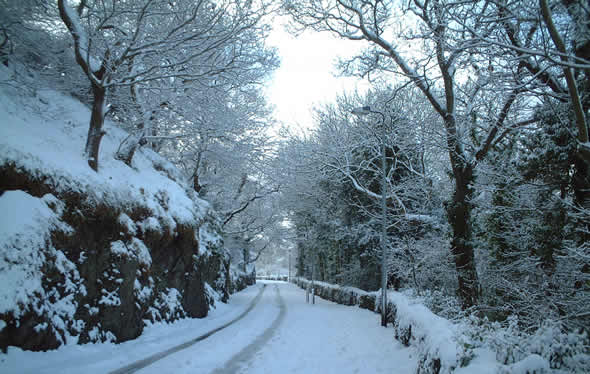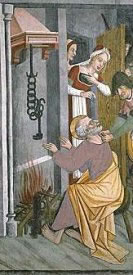What do the words in the title of this post have in common?
Well, they all originally come from Etruscan, according to Nicholas Ostler in Ad Infinitum – A Biography of Latin and the World it Created, one of the books I’m reading at the moment.
The English word tavern dates from the late 13th century, when it meant “wine shop”, and later came to mean “public house”. It comes from the Old French taverne, (shed made of boards; booth; stall; tavern; inn), from the Latin taberna (shop, inn, tavern) – originally “hut or shed”, from Etruscan [source]. The Greek word ταβέρνα (taverna) comes the Latin [source].
Column comes from the Old French colombe (column, pillar), from the Latin columna (pillar), which the Online Etymology Dictionary says is a collateral form of columen (top, summit), from the Proto-Indo-European base *kel- (to project), but which Nicholas Ostler believes comes from Etruscan.
Cap comes from the Old English cæppe (hood, head-covering, cape), from the Late Latin cappa (a cape, hooded cloak), which is possibly a shortened from capitulare (headdress) from caput (head) [source], or from the Etruscan.
Other Latin words that are thought to come from Etruscan include voltur (vulture), ātruim (forecourt), fenestra (window), caseus (cheese), culīna (kitchen), tuba (trumpet), urna (urn), mīles (soldier), Aprīlis (April), autumnus (autumn) and laburnum (shrub).


